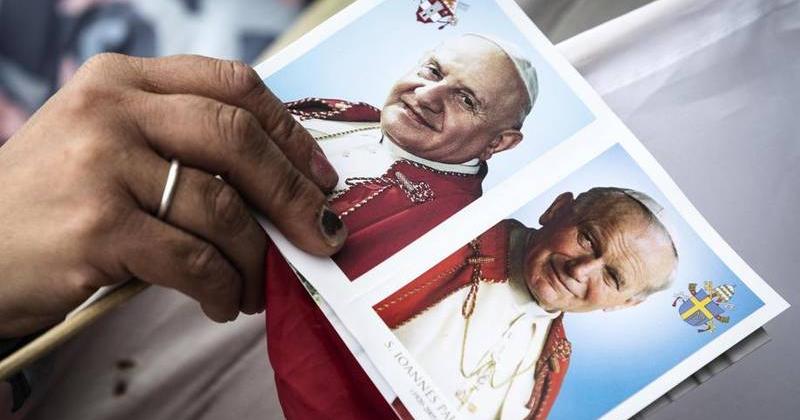John and John Paul, the two saints who have been canonized by Pope Francis, have something in common: a significant number of people wanted them to be proclaimed saints right after their death. In Roncalli’s case, it was not just the public that expressed a strong wish for this to happen; three hundred bishops signed a proposal asking Paul VI to proceed with John XXIII’s canonization by acclamation at the end of the Second Vatican Council.
Pope Montini was convinced of his predecessor’s saintliness. In a confidential letter included among the documentation for the canonization procedure, the day after Pope Roncalli’s death, the then archbishop of Milan wrote a message to the Sacred Congregation of Rites addressed to “John XXIII’s successor” asking for the Bergamascan Pope’s beatification: “The whole of humanity, believers and non-believers, faithful and non-faithful alike join in this sweet supplication, a unified consensus reaches for the first time in history … This humanity would have canonized him with one voice in centuries past.” A few days later, the Conclave elected him as successor. But he preferred not to proceed hastily and did not think it opportune to proclaim the “Good Pope” a saint immediately. He began the normal procedure, therefore, considering Roncalli’s cause alongside Pius XII’s.
Not many know that something similar happened to John Paul II in 2005. Before the Conclave, a number of cardinals had signed a petition to open the canonization process and straight after his election, Ratzinger received a request from Mgr. Stanislaw Dziwisz, Wojtyla’s former secretary asking him to skip the beatification step and proceed immediately with the canonization. “Santo subito!” (“Saint Straight Away!”) banners in St. Peter’s Square read after John Paul II’s funeral.
Pope Benedict XVI was not against this. But he wanted to consult with the Congregation for the Causes of Saints before taking a definitive decision. Theologians were not in favour of the proposal: even though a Pope can proclaim someone a saint without following the rules laid down by Canon law, the length and complexity of Wojtyla’s pontificate led to his decision to take more time to study the cause before approving it. And so Benedict XVI’s answer to the “Saint Straight Away” requests was “no”. But he did waive the five-year waiting period that usually follows an individual’s death before the canonization process can begin.
A number of testimonies regarding both causes were examined. Some raised doubts over elevating too many Popes to the altars, despite the widespread fame of holiness of today’s two saints among the faithful. Many aspects of their lives were scrutinized. Roncalli’s dossier even included unfounded hearsay, such as allegations he had been a freemason. He was also accused of homosexuality in a letter which proved to be false and slanderous. This was carefully verified through a request presented in 1981 in Periguéux, France.
John Paul II’s dossier, meanwhile, contained a “sub-secret” volume containing a letter dated June 2008, in which the former Secretary of State and current Dean of the College of Cardinals, Angelo Sodano, expressed his “doubts” regarding the “opportunity of giving this cause precedence, overtaking those [of other Popes] which have already been underway” for years. He was, however, in no doubt as to the fact that Wojtyla “had lived a life of holiness.” On 3 November 2008 Lelio Scaletti, the emeritus director general of the Institute for Works of Religion (IOR) issued a statement saying: “I was never once asked (by the Pope, Ed.) to send any financial resources to entities or movements in Poland.” He meant Solidarnosc. There was also a letter from the then Prefect of the Congregation for the Doctrine of the Faith , Levada, which stated that there was nothing in the archives regarding John Paul II’s “personal involvement” in the scandal surrounding the disgraced child-abusing founder of the Legion of Christ, Marcial Maciel Degollado.
The debate over certain aspects of the two papacies will continue, particularly in light of the opening of the archives. But as Pope Wojtyla said when he raised Pius IX to the altars in 2000: “In beatifying one of her sons, the Church does not celebrate the specific historical decisions he may have made.” In essence, even a saint, whose life has been scrutinised and deemed worthy of sainthood, may have committed mistakes in the past.
